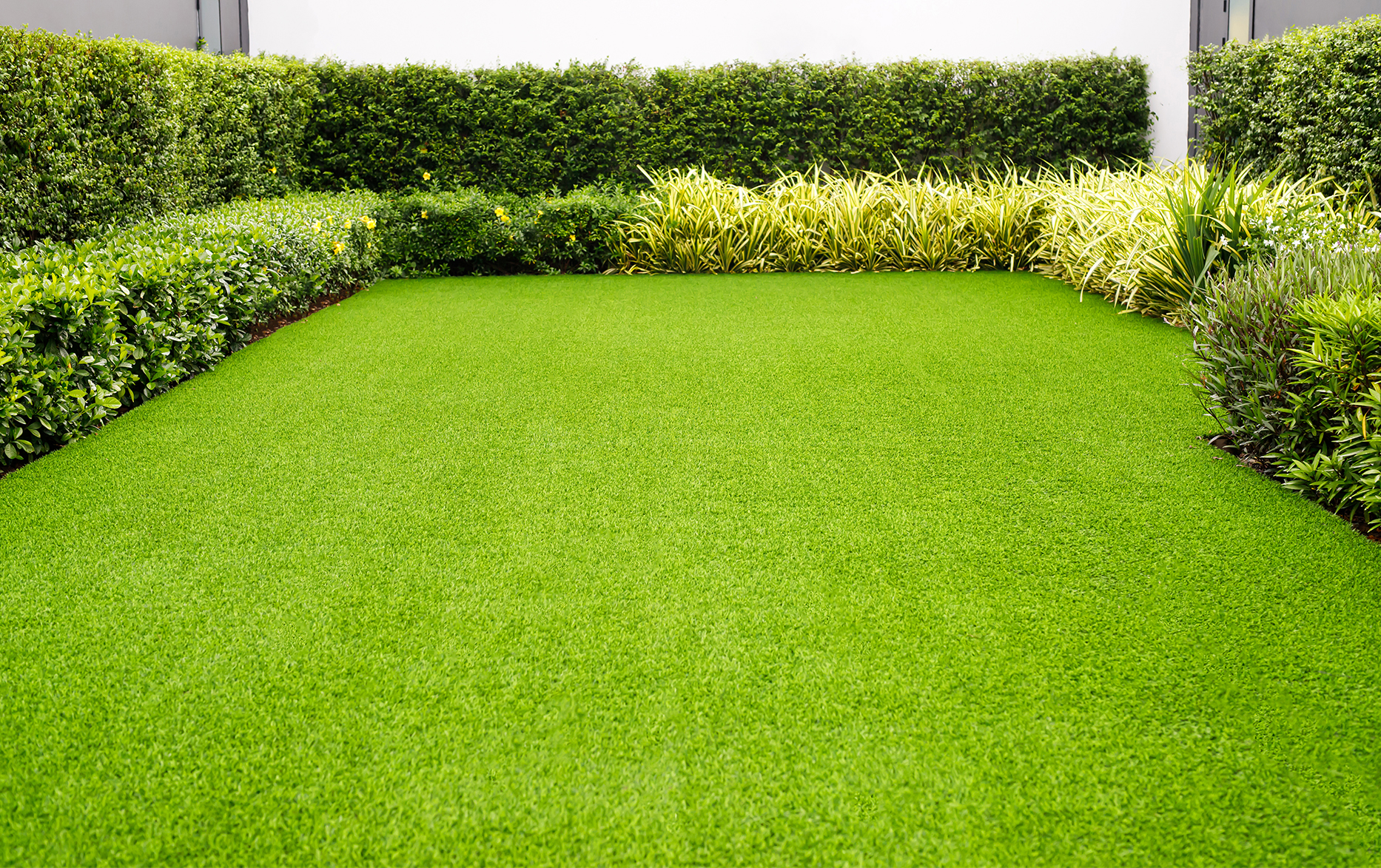Look Into the Environmental Perks of Opting for Artificial Lawn Solutions
The adoption of fabricated grass services offers an engaging chance to address pushing environmental obstacles. By dramatically decreasing water use and lessening the application of hazardous chemicals, these alternatives not just promote lasting landscaping however likewise safeguard local ecosystems. The reduced carbon footprint connected with reduced maintenance tasks adds to a much more lasting strategy to land administration. Nonetheless, the ramifications of these advantages extend past simple preservation initiatives, increasing questions concerning their long-term influence on environment preservation and general eco-friendly balance. Checking out these measurements reveals an intricate interplay worth thinking about.
Water Conservation Benefits
One of the most significant benefits of synthetic turf is its capacity to save water. In comparison, fabricated grass does not need watering, significantly decreasing the general demand for water sources.
By eliminating the requirement for regular watering, synthetic grass adds to lasting landscape practices and assists mitigate the ecological influence of too much water usage. The preservation of water expands to the reduction of drainage, which can lead to soil erosion and waterway contamination.
Furthermore, the installment of synthetic grass permits communities and homeowners to allocate water resources a lot more successfully, concentrating on vital uses such as alcohol consumption water and agriculture. The shift towards man-made turf not only promotes accountable water usage but additionally straightens with broader environmental goals targeted at protecting natural deposits.
As areas progressively focus on sustainability, the water preservation advantages of synthetic grass provide an engaging situation for its fostering in property and business landscaping tasks.
Lowered Chemical Usage
The shift to man-made grass considerably reduces the dependence on chemical therapies generally made use of in all-natural turf upkeep. Standard grass management generally involves the application of pesticides, plant foods, and herbicides to promote development and control bugs. These chemicals can present risks to human health, neighborhood wild animals, and the environment, adding to dirt and water contamination.
In comparison, artificial grass gets rid of the demand for these damaging substances. By lessening the launch of synthetic compounds into the ecological community, synthetic lawn advertises much healthier dirt and water systems.
Furthermore, the absence of chemical drainage related to synthetic grass installments aids safeguard neighborhood waterways from contamination, sustaining water life and maintaining biodiversity. Artificial turf companies phoenix. As neighborhoods significantly focus on lasting techniques, choosing man-made lawn presents a practical option that straightens with environmental preservation goals. With this change, residential or commercial property owners can appreciate lush green spaces without jeopardizing environmental wellness, leading the way for a much more lasting future
Reduced Carbon Footprint

Moreover, the installment of artificial turf can lead to considerable water preservation. All-natural grass require considerable amounts of water for irrigation, which not only adds to the carbon footprint related to water removal and therapy however additionally pressures neighborhood water sources. On the other hand, synthetic grass needs minimal maintenance, needing no watering, therefore significantly reducing water usage and its associated energy expenses.
Additionally, the longevity of synthetic grass contributes to its lower carbon influence. With a life-span of approximately 15 years or even more, the demand for regular substitutes is decreased, leading to less waste and lower power intake in production and taking care of standard lawn options. In like it general, synthetic turf offers a lasting choice for ecologically conscious landscape design.
Environment Preservation
Environment conservation is an important consideration in the debate over landscaping selections, specifically when contrasting fabricated grass to natural yard. All-natural lawn yards commonly need extensive upkeep, including the use of pesticides, herbicides, and plant foods, which can detrimentally affect neighborhood ecological communities. These chemicals can seep right into the dirt and waterways, hurting native flora and fauna and interrupting local environments.
Synthetic turf eliminates the requirement for unsafe chemicals, thereby protecting nearby wild animals and maintaining the integrity of surrounding ecosystems. The installation of artificial turf can lead to the conversion of former grass areas into even more biodiverse landscapes, such as pollinator yards or indigenous plant areas, which can support neighborhood wild animals.
Ultimately, the change to artificial lawn not just saves water and reduces upkeep efforts however also fosters an extra unified partnership in between human tasks and the natural environment, promoting environment conservation while doing so.
Long-Term Sustainability
Long-term sustainability is a vital aspect in evaluating the advantages of synthetic grass over traditional yard lawns. One of one of the most considerable benefits of artificial grass is its longevity; it can last as much as 15-20 years with minimal upkeep, whereas natural grass requires frequent reseeding and substitute. This durability reduces the demand for constant resources, such as water, plant foods, useful reference and pesticides, which are crucial for preserving a healthy and balanced turf yard.
Furthermore, synthetic grass contributes to a decrease in carbon emissions linked with lawn treatment tools. Standard yards often need gas-powered lawn mowers, leaners, and blowers, every one of which add to air contamination. Arizona turf. In contrast, synthetic grass removes the need for such devices, advertising a cleaner environment
Furthermore, the manufacturing of artificial grass increasingly utilizes recycled products, boosting its sustainability profile. As manufacturers take on environmentally friendly practices, the ecological impact of synthetic grass remains to diminish.

Final Thought
The adoption of fabricated grass solutions offers significant ecological advantages, consisting of considerable water preservation, minimized reliance on unsafe chemicals, and a lower carbon impact. Fabricated grass help in preserving natural habitats by lessening land disturbance and promoting lasting sustainability through the usage of durable materials. Jointly, these aspects highlight the possibility of synthetic grass to add positively to environmental health and offer a sensible choice to traditional landscape design methods in a significantly resource-conscious world.
In contrast, man-made lawn does not require watering, substantially lowering the overall demand for water resources. By minimizing the release of artificial compounds into the ecological community, artificial turf promotes much healthier soil and water systems.
Additionally, the installation of man-made lawn can result in substantial water preservation. In contrast, man-made turf requires minimal upkeep, calling for no watering, consequently substantially minimizing water usage and its connected power prices.
